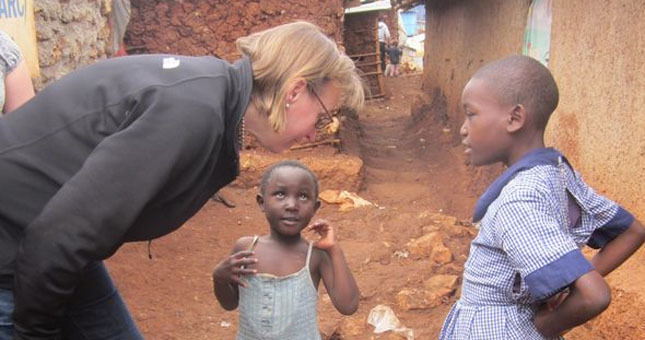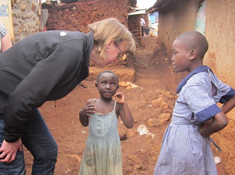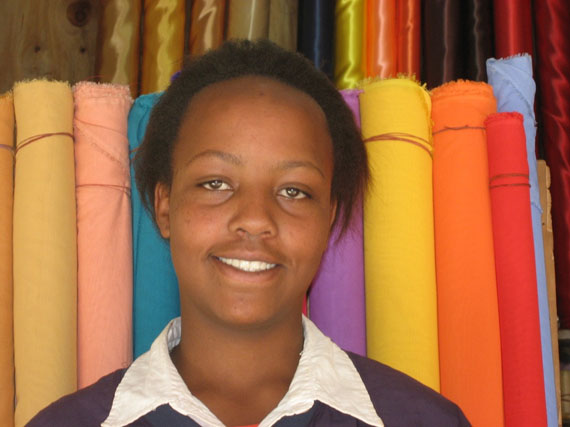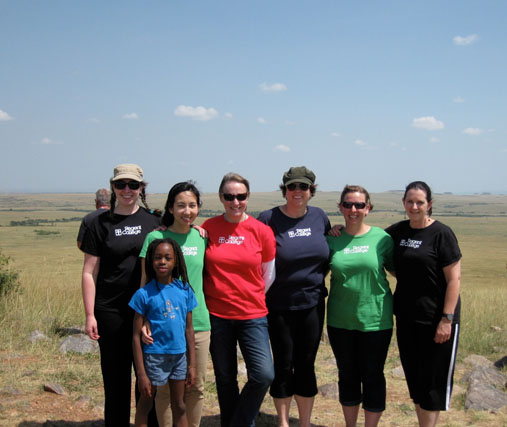
Into Africa: Exploring Theology and Ministry in Nairobi
A little reserved and sitting slightly askew to avoid direct eye contact, she folds her hands neatly in her lap. Nelius, aged seventeen, lives with her mother. She doesn’t know her father. She and her mother, along with her four siblings, live in a single room in one of the informal slum settlements in Nairobi.
Her mother doesn't work. Nelius is given 5 KSh a day for food (6 cents). For breakfast, she buys a stick or two of chewing gum that helps stave off the hunger and gives her better smelling breath, but which doesn’t help with her painful stomach ulcers. Sustained with gum, Nelius walks the three hours to school. Every Saturday, she works eight hours on a farm near her settlement, earning just 100 KSh (just over $1) to help support her family.
Nelius watched her eldest sister, Salome, die last month. She says the grief is better now, but for the first few weeks she was unable to speak. She is devastated at the loss of the one person who really loved her. Like any other teenager, she dreams of travelling the world.
Nelius loves the Lord and serves on the worship team at her church. I ask her to sing to me. Her beautiful, rasping voice makes me almost weep. She sings in Swahili about how the Lord will protect her from trouble and hardship as she grieves and asks him for help. The poignancy is almost unbearable.
I met Nelius at her vocational school on the outskirts of Nairobi, where I spent time counselling vulnerable teenagers towards the end of the Regent course, Into Africa: Exploring Theology and Ministry in Nairobi, Kenya. Through this practical experience, I was able to better understand one of the key themes of the class: how African Christians live out the gospel in the academy, the church, and the world.
Of what benefit is it for someone like Nelius, or anyone living in the slums, to have a theological debate as to how many angels can fit on the head of a pin? In Nairobi, my classmates and I were reminded that just as God didn’t encounter us in an ivory tower, so we can’t do theology in a sanitized or secluded context. We heard about the importance of living and learning theology that is embedded in reality and manifested in action. Just as God encountered us in the incarnation, we too need to pay attention to the reality around us as we engage in theological dialogue. A shepherd needs to smell his sheep.
African theology is a contextual theology, a theology that engages with the people of God. It is about being within earshot of what is happening in a community, paying attention to how we experience God and the pain in the context in which we live. It is also a practical theology. How do we connect the praxis of Jesus with our own current practices and situations?
We had the opportunity to meet with PhD students who are writing their theses with a view to practical application. In their spare time, these students serve, preach, and help widows and orphans. Without knowing what I will do after my Master’s degree, I sometimes feel I am studying for personal growth and transformation, wondering what “I” can get out of it. The Kenyans that we met study theology so they can be the hands and feet of Jesus. Western Christians will often talk about their giftedness and unique wiring in one particular area. I am called to prayer; you are called to evangelism. In Nairobi, they don’t differentiate between where or how to serve, as every area in which they serve is a calling, a passion, and a desire. They want to see transformation in and through the local church and are prepared to act in any way they can.
We met Father Orobator, a godly Nigerian Jesuit priest and theologian in his mid-forties who has an incredible story of transformation from his traditional African religion roots to his conversion to Catholicism in his teens. He talked about a desire for African Christianity to tell its own story. An African cannot be a Christian without acknowledging traditional African religion. In this, we heard a strong call for a rehabilitation of Africa’s religious heritage, a reclaiming of its roots and a clarifying of the nature and meaning of African Christian identity. Orobator is passionate about incarnational and contextual theology. He says that if God is really present, then he is present in every facet of life. You can honour a non-Christian religious background and still claim full membership in the Christian community.
The theologians we met are trying to respond to the many questions being asked in their specific context. Where is God in Nelius’ life? Where is God in the grinding poverty of the informal settlements? Where is God in the AIDS/HIV epidemic? Can you do theology in Rwanda and avoid the reality of genocide? What is the mission of the academy, the church, and the world in being attentive to and responding to these issues?
Orobator closed his time with us by stressing the importance of communities and individuals engaging in dialogue:
- a dialogue for life, born out of authentic respect as we listen and interact with each other as human beings created in the image of God;
- a dialogue of action, prompted by our faith as we engage in common action, grappling together with the issues of social injustice;
- a dialogue of theological reflection as we humbly embark on a mutual pursuit of the truth; and,
- a dialogue of worship, as we glorify God as one body, irrespective of our theological or cultural backgrounds.
I am still left to wonder, alongside one of the other vulnerable teenagers at the school, Faith, who is being beaten regularly by a violent and alcoholic father, how to respond when she asks me what it really means to be covered and protected with the shed blood of Christ. All I can do is be present, pray, and cry with her as together we marvel that Jesus is preparing a place for us both, a house with many rooms, where we will be with him forever.




